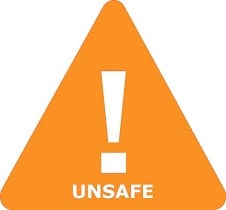Is Gallium Citrate Ga 67 Safe in Breastfeeding
Question
I am a breastfeeding mother and i want to know if it is safe to use Gallium Citrate Ga 67? Is Gallium Citrate Ga 67 safe for nursing mother and child? Does Gallium Citrate Ga 67 extracts into breast milk? Does Gallium Citrate Ga 67 has any long term or short term side effects on infants? Can Gallium Citrate Ga 67 influence milk supply or can Gallium Citrate Ga 67 decrease milk supply in lactating mothers?
Gallium Citrate Ga 67 lactation summary

- DrLact safety Score for Gallium Citrate Ga 67 is 5 out of 8 which is considered Unsafe as per our analyses.
- A safety Score of 5 indicates that usage of Gallium Citrate Ga 67 may cause serious side effects in breastfed baby.
- Our study of different scientific research indicates that Gallium Citrate Ga 67 may cause moderate to high side effects or may affect milk supply in lactating mother.
- Our suggestion is to use safer alternate options rather than using Gallium Citrate Ga 67 .
- It is recommended to evaluate the advantage of not breastfeeding while using Gallium Citrate Ga 67 Vs not using Gallium Citrate Ga 67 And continue breastfeeding.
- While using Gallium Citrate Ga 67 Its must to monitor child for possible reactions. It is also important to understand that side effects vary largely based on age of breastfed child and time of medication in addition to dosage.
- Score calculated using the DrLact safety Version 1.2 model, this score ranges from 0 to 8 and measures overall safety of drug in lactation. Scores are primarily calculated using publicly available case studies, research papers, other scientific journals and publically available data.
Answer by Dr. Ru: About Gallium Citrate Ga 67 usage in lactation
Pump-out breast milk and store it in refrigerator for some days before testing. After test is done, dispose milk for:1 week if dose is 7 Mbq (0,2 mCi)2 weeks if dose is 50 Mbq (1,3 mCi)4 weeks if dose is 150 Mbq (4,0 mCi)Keep-on pumping to mantain milk production.Choose the shortest half-life span radionuclide as possible.
Answer by DrLact: About Gallium Citrate Ga 67 usage in lactation
Information in this record refers to the use of Ga 67 citrate as a diagnostic agent. The United States Nuclear Regulatory Commission states that breastfeeding should be interrupted temporarily after administration of Ga 67 citrate to a nursing mother. The duration of breastfeeding interruption depends on the dose administered (see table).[1] The International Commission on Radiological Protection recommends discontinuation of breastfeeding for more than 3 weeks after Ga 67 citrate.[2] Those receiving the higher doses might have to permanently discontinue breastfeeding this infant.[3][4] After doses greater than 200 MBq, consideration of temporarily limiting close contact between the mother and infant.[5] During the period of interruption, the breasts should be emptied regularly and completely. If the mother has expressed and saved milk prior to the examination, she can feed it to the infant during the period of nursing interruption.[3][5][6] The milk that is pumped by the mother during the time of breastfeeding interruption can either be discarded or[3][6] stored frozen and given to the infant after 10 physical half-lives, or about 33 days, have elapsed. Mothers concerned about the level of radioactivity in their milk could ask to have it tested at a nuclear medicine facility at their hospital. When the radioactivity is at a safe level she may resume breastfeeding. A method for measuring milk radioactivity and determining the time when a mother can safely resume breastfeeding has been published.[4] Mothers who receive a dose less than 190 MBq for an inflammation scan need not refrain from close contact with their infants.[7]
| Dose | Duration of Interruption[1] |
|---|---|
| 150 MBq (4 mCi) | 1 month |
| 50 MBq (1.3 mCi) | 2 weeks |
| 7 MBq (0.2 mCi) | 1 week |
